Proper nutrition plays a crucial role in the body's recovery after running. During intense training, muscles suffer microdamage, glycogen is depleted, and fluid and electrolytes are lost.
During the recovery period, it is important to replenish this resource and reduce inflammation in order to speed up muscle regeneration and prepare your body for the next workout.
Research shows that proper recovery includes:
- restoration of muscle fibers through protein
- replenishment of glycogen with carbohydrates
- rehydration and replenishment of electrolytes
- neutralization of oxidative stress with the help of antioxidants.
Below are ten categories of products that help athletes bounce back faster after running and intense training.
1. Carbohydrates—replenishment of energy and glycogen
Intense running and training significantly deplete muscle glycogen stores, the main source of energy during high-intensity exercise. To speed up recovery, nutritionists recommend consuming carbohydrate-rich foods immediately after exercise.
This is necessary for the synthesis of new glycogen in the muscles, which will restore energy and improve performance during subsequent workouts.
- Fast carbohydrates (bananas, raisins, sports drinks) immediately after running provide the body with quickly absorbed glucose.
- Slow carbohydrates (whole grain bread, oatmeal, sweet potatoes) in main meals provide a steady replenishment of energy and additional nutrients.
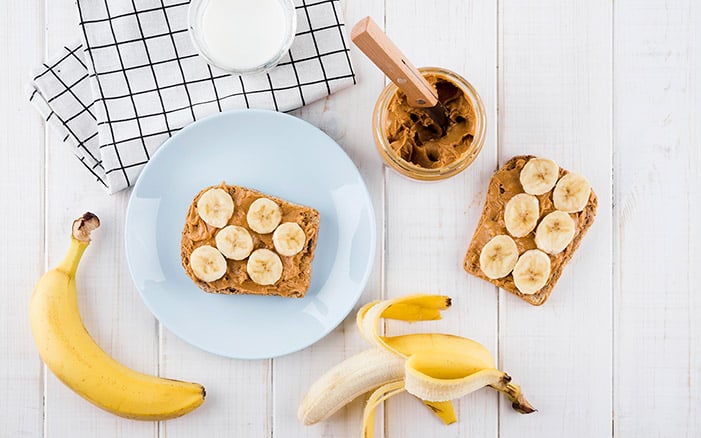
As a result, sufficient consumption of carbohydrate products after exercise promotes glycogen synthesis and ensures complete restoration of fuel reserves in the muscles.
2. Proteins—restoration and synthesis of muscle fibers
Physical exercise causes microdamage to muscle fibers, so protein is an essential nutrient for post-workout recovery. The intake of amino acids with dietary protein stimulates the synthesis of new muscle structures and the restoration of damaged tissue.
- Animal protein sources (e.g., poultry, fish, eggs, dairy products) contain a full set of essential amino acids and are highly effective for recovery. Thus, fatty fish is not only rich in protein but also contains omega-3 fatty acids, which further reduce muscle soreness.
- Plant sources (legumes, quinoa, tofu) are also useful, especially in several types, for obtaining complete complex amino acids.
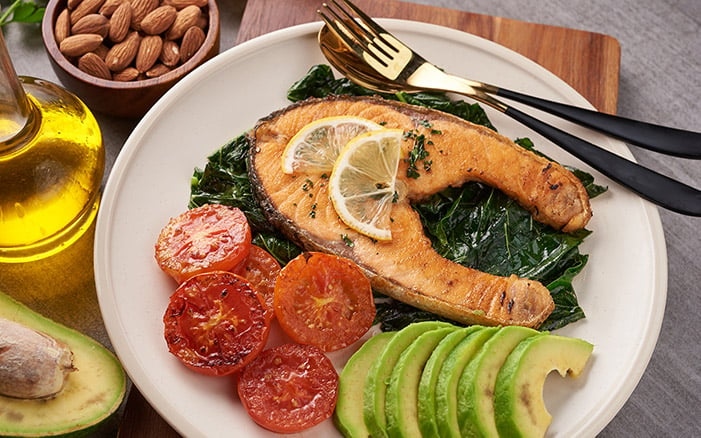
The combination of proteins and carbohydrates in the first hours after training is especially effective: the insulin response from the ingredients enhances amino acid uptake by muscles, increasing the rate of recovery.
3. Healthy fats (Omega-3)—reduce Inflammation
In addition to protein and carbohydrates, healthy fats are essential for proper recovery, especially omega-3 fatty acids. Omega-3s found in fatty fish (salmon, sardines, trout), flax seeds, chia seeds, and walnuts, are known for their anti-inflammatory properties.
Intense exercise can cause an inflammatory response and muscle soreness (DOMS—delayed onset muscle soreness), and omega-3s help mitigate these effects.
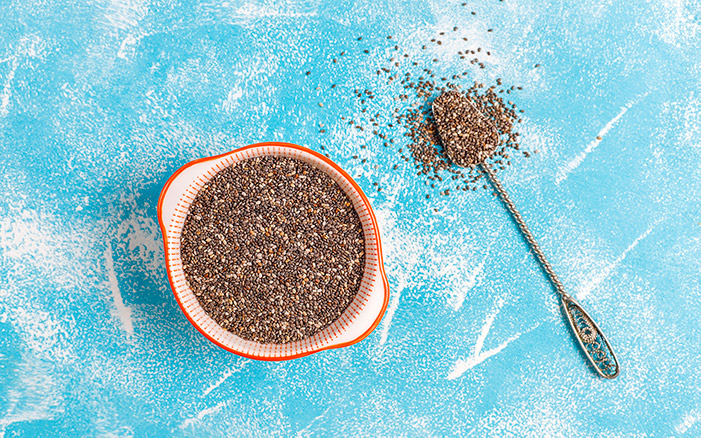
Research shows that adding about 0.07–0.1 oz (~2–3 g or roughly ½ teaspoon) of omega-3s post-workout can help reduce inflammatory markers and decrease the severity of muscle soreness.
For example, eating a serving of salmon (about 4 oz or 113 g cooked) provides roughly 0.05–0.07 oz (1.5–2 g) of omega-3s, which is close to the recommended dose.
4. Fruits and berries—antioxidants against oxidative stress
During exercise, the body increases the formation of free radicals and reactive oxygen species, which leads to oxidative stress and can increase muscle damage.
Antioxidants found in fruits and berries neutralize these free radicals, thereby reducing inflammation and promoting faster recovery.
Brightly colored berries (blueberries, cherries, currants, raspberries) are rich in anthocyanins and polyphenols—powerful antioxidants.
Pomegranate juice is rich in polyphenols, which reduce oxidative damage to muscles; blackcurrant juice and blueberry extract have also been linked to reduced inflammation in athletes.
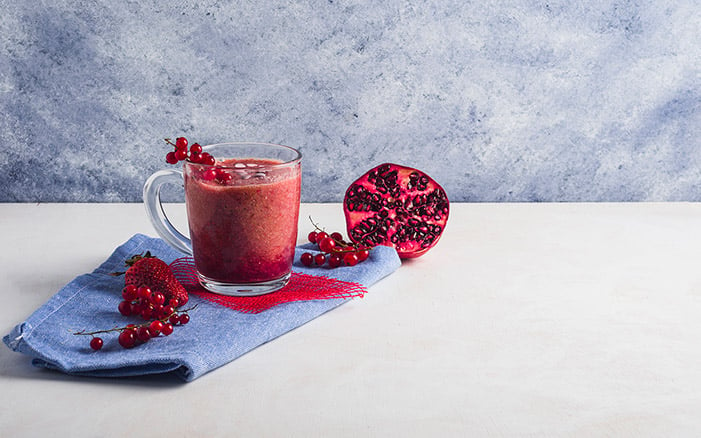
Vitamin C from fruits (citrus fruits, kiwi) supports the immune system and is involved in the synthesis of collagen to repair connective tissue.
Vitamin E (found, for example, in avocado) protects cells from lipid peroxidation. Thus, a serving of fruit or a berry smoothie after a workout helps neutralize excess oxidative stress and facilitates muscle recovery.
5. Vegetables and greens—nitrates and trace elements for improving blood flow
Fresh vegetables, especially leafy greens and root vegetables, are necessary for athletes during the recovery period due to their high content of nitrates, antioxidants, and minerals.
Nitrates, which are rich in, for example, beets, spinach, and arugula, are converted into nitric oxide (NO) in the body. Nitric oxide dilates blood vessels and improves blood flow to the muscles, thereby facilitating better delivery of oxygen and nutrients for recovery.
A study found that drinking beetroot juice immediately and for 48 hours after intense exercise reduced muscle soreness and accelerated strength recovery to a greater extent than a placebo.
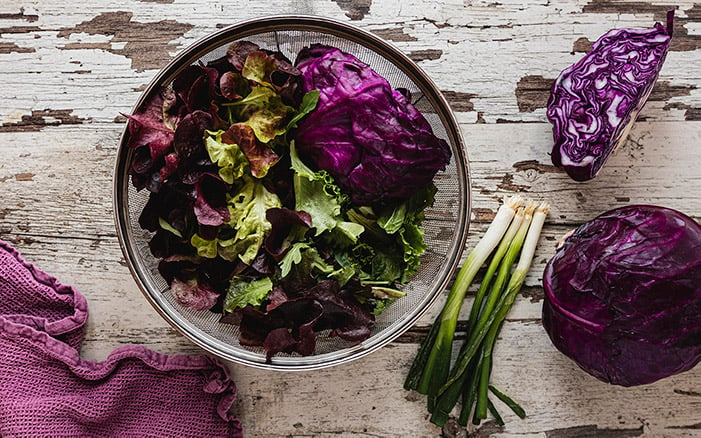
Leafy greens (spinach, kale) are rich in magnesium and potassium, which are key electrolytes for muscle function and cramp prevention:
- Magnesium helps muscles relax after contraction, thereby reducing tension and the risk of cramping.
- Potassium is needed to restore normal fluid balance and muscle cell function after sweating.
So, it is no coincidence that green vegetables and potatoes are recommended in the diet of runners: they replenish salts, which are greatly lost during long runs.
6. Water and electrolytes—hydration and salt balance
Intense sweating during running leads to a loss of not only water, but also electrolytes (sodium, potassium, chloride, etc., contained in sweat).
Rehydration is a critical aspect of recovery, as even minor dehydration can impair recovery processes and subsequent muscle performance.
It is necessary to replenish fluids immediately after a run: drinking water is optimal for this, and for long or very intense exercise—special isotonic drinks or natural sources of electrolytes (for example, coconut water). Such drinks help restore the balance of sodium, potassium, and other salts, accelerating the recovery of muscle function.
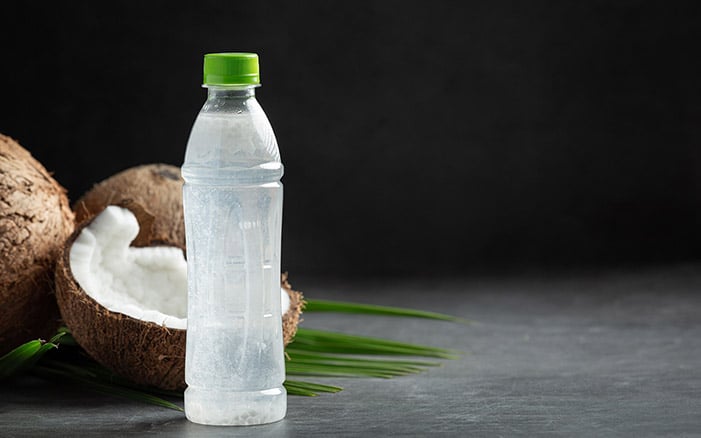
Sodium is especially important for retaining water in the body and restoring blood volume; it can be obtained from a small amount of salt or salty snacks after training. Potassium and magnesium, as noted above, are replenished with fruits (bananas, rich in potassium) and vegetables.
Proper hydration promotes more efficient transport of nutrients to muscles, maintains blood circulation and thermoregulation, thereby creating optimal conditions for recovery.
7. Dairy products—combined nutrition for muscles and energy
Milk and fermented milk products have long been known as excellent recovery nutrition for athletes. They are unique in that they simultaneously contain proteins and carbohydrates, as well as fluid and electrolytes.
Milk protein (whey and casein) is rich in the amino acid leucine, which triggers muscle protein synthesis.
A glass of chocolate milk contains protein and carbohydrates, including lactose, which makes it an ideal natural “sports mix” to drink immediately after running. Milk carbohydrates replenish glycogen, and proteins repair muscles; in addition, milk contains sodium and potassium for rehydration.
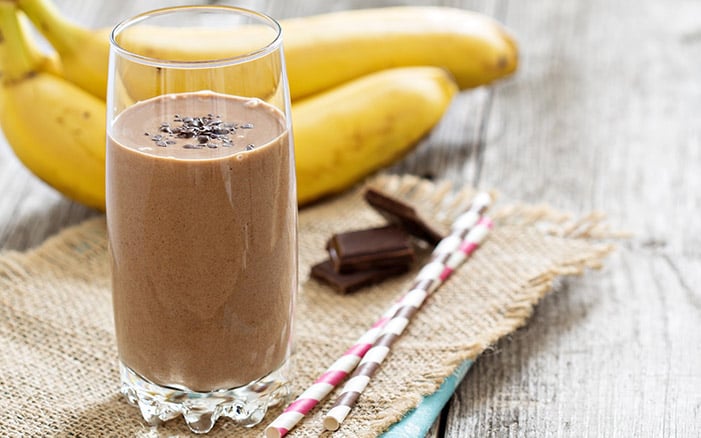
In addition to milk, good options are Greek yogurt, kefir, and cottage cheese: they are rich in protein and contain carbohydrates. These products not only help muscles, but also improve the condition of the intestines due to probiotics (in yogurt and kefir), which is important for the athlete's immunity.
Combining dairy products with carbohydrates (for example, yogurt with fruit or chocolate milk with a banana) provides the body with all the necessary components for a quick and complete restoration of energy reserves and muscle building at the same time.
8. Fermented foods—support immunity and reduce stress
Strong physical exercise can temporarily weaken the immune system and cause inflammation in the body. Fermented foods containing probiotics (good bacteria) help support digestive health and immunity, which indirectly contributes to rapid recovery.
Such products include: yogurt and kefir, sauerkraut, kimchi, kombucha, and others. Beneficial gut microflora plays a known role in regulating inflammation and can even influence muscle function via the gut–muscle axis.

A review indicates that probiotic and prebiotic foods support gut health and immune function, being an integral part of effective recovery.
For example, regular consumption of kefir can reduce the incidence of intestinal disorders and upper respiratory infections in endurance runners, thereby allowing them to train continuously.
There is also evidence that certain strains of probiotics can reduce oxidative stress and markers of muscle damage.
By including a serving of a fermented product in your post-workout diet (for example, a yogurt-based smoothie or a side dish of sauerkraut), you not only supply your muscles with protein and micronutrients but also provide support for the immune system, which speeds up the overall regeneration of the body after exercise.
9. Nuts and seeds—sources of magnesium, vitamin E, and plant protein
A variety of nuts and seeds are concentrated sources of nutrients that are beneficial for recovery. They contain plant protein, healthy fats, and important vitamins and minerals.
Magnesium, found in high amounts in almonds, pumpkin seeds, and sunflower seeds, helps muscles relax after contractions and reduces the risk of cramps. Adequate dietary magnesium speeds up recovery, as research shows: in physically active people, higher magnesium intake is associated with reduced muscle soreness and fatigue.
Vitamin E, found in almonds, hazelnuts, and seeds, is a powerful antioxidant and protects muscle cells from oxidative damage during exercise. It neutralizes free radicals in the lipid membranes of cells, helping to prevent excessive inflammation and muscle damage.
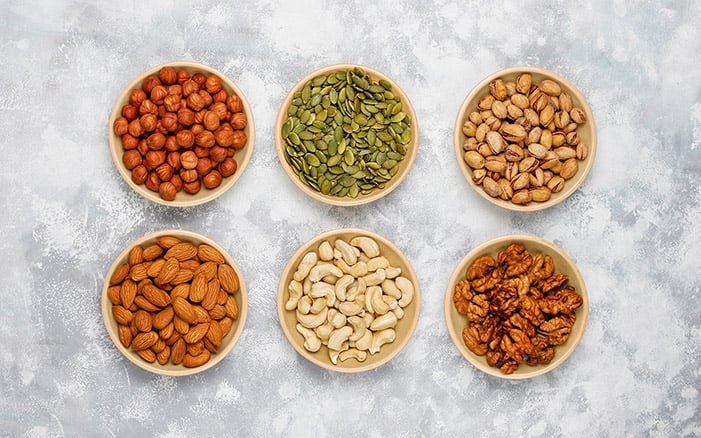
Interestingly, endurance athletes often have insufficient dietary antioxidants, and increasing their intake of foods rich in vitamin E and other antioxidants can improve their oxidative status.
Nuts also contain zinc and copper—micronutrients involved in regenerative processes and healing of microdamage to tissues. The unsaturated fatty acids in nuts (for example, omega-9 from almonds, omega-3 from walnuts) contribute to cardiovascular health by ensuring good blood flow to working muscles.
A handful of nuts or a mixture of nuts and dried fruits after a run will serve as an excellent recovery snack: the body will receive proteins and amino acids for muscle repair, calories for energy, and antioxidants with minerals to combat stress and inflammation.
10. Anti-inflammatory spices and herbs
Some spices and herbs have been scientifically proven to reduce inflammation and muscle soreness caused by exercise. This primarily applies to turmeric (a spice made from the turmeric root) and ginger.
Curcumin, the active ingredient in turmeric, is a powerful natural anti-inflammatory and antioxidant. In one study, taking about 0.05 oz (~1.5 g) of curcumin per day for several days after eccentric exercise led to a significant reduction in pain (DOMS) compared to a placebo.
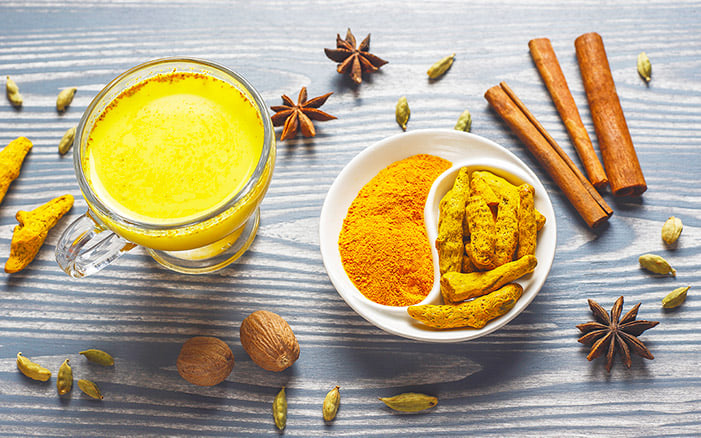
Ginger contains substances that reduce the production of pro-inflammatory compounds. In experiments, adding ginger extract to the diet of athletes was associated with reduced muscle soreness and accelerated strength recovery after heavy loads.
So, by adding a pinch of turmeric to a post-workout smoothie or drinking ginger tea, you supply your body with natural anti-inflammatory compounds that facilitate recovery.
Of course, spices are just a supplement to the main diet, but in combination with the above products, they help return muscles to working condition faster.
Related: 8 Foods to Eat Before and After a Run for Optimal Fat Burn
Recovery after runs and intense workouts is a multifaceted process that requires both time to rest and the intake of the right nutrients. By eating right, you give your body the “building material” for muscle repair, fuel to replenish energy costs, and components to reduce inflammation and oxidative stress.
By Lena Sage








